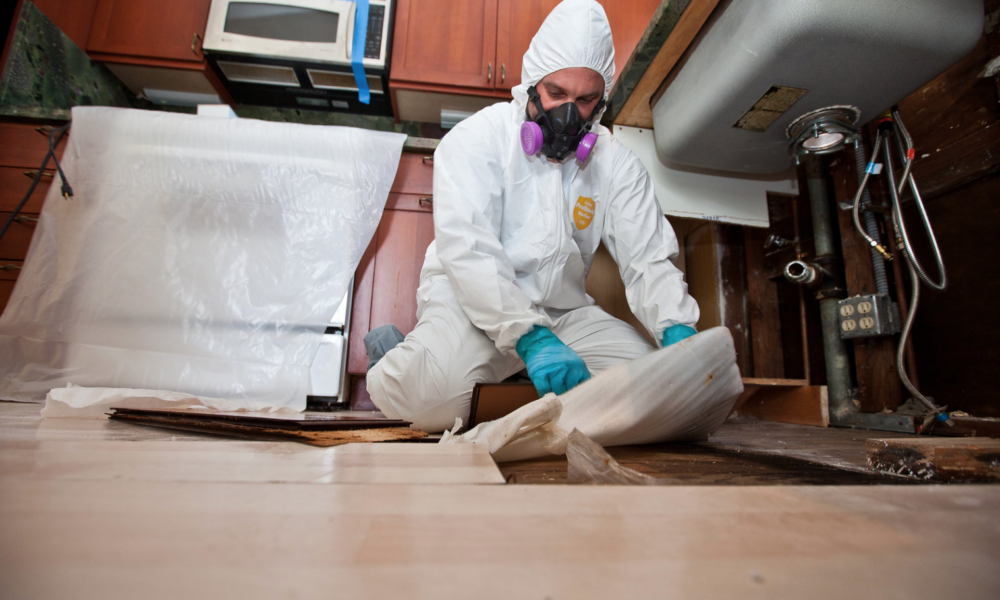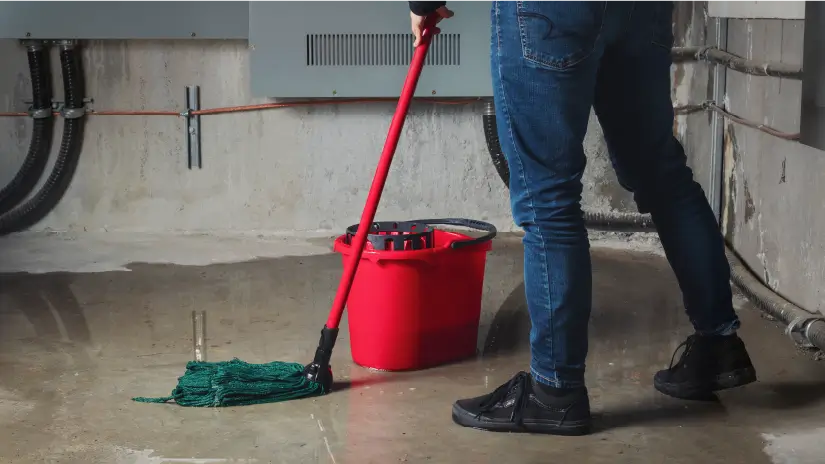Cleaning up from a sewage backup isn’t just a messy task; it’s fraught with significant health risks and complexities that make it a challenging DIY project. You’re not just dealing with unpleasant odors and unsightly mess; exposure to harmful pathogens can lead to serious illnesses. Without specialized equipment and protective gear, you risk incomplete decontamination and potential mold growth. The intricate process requires a thorough understanding of proper procedures, something most homeowners lack. Curious about what makes this task even more daunting and why professional help might be your best bet? Let’s explore further.
Health Risks
Dealing with a sewage backup isn’t just an unpleasant task; it poses serious health risks. You’re not just facing foul odors and a messy cleanup.
Sewage backups can expose you to harmful pathogens like bacteria, viruses, and parasites. Contact with contaminated water can lead to serious illnesses such as hepatitis, gastroenteritis, and other infections. Even inhaling fumes from sewage can cause respiratory issues.
Additionally, mold growth can occur quickly in such environments, exacerbating asthma and allergies. You must be extremely cautious to avoid direct contact with the sewage and any surfaces it has contaminated.
Neglecting proper hygiene and safety measures can result in severe health consequences. Always prioritize your safety and consider professional help for thorough and safe cleanup.
Specialized Equipment
When tackling a sewage backup, having the right specialized equipment is crucial for ensuring a thorough and safe cleanup.
You’ll need heavy-duty protective gear, such as gloves, masks, and waterproof boots, to shield yourself from harmful pathogens. High-capacity wet/dry vacuums are essential for efficiently removing contaminated water and debris.
Industrial-strength cleaning agents and disinfectants will help eradicate bacteria and viruses that pose serious health risks.
Don’t forget about air scrubbers and dehumidifiers; they’re vital for eliminating lingering moisture and preventing mold growth.
Additionally, specialized pumps might be necessary to handle large volumes of waste.
Investing in the right tools not only ensures a more effective cleanup but also protects your health and home from further contamination.
Expertise Required
Beyond having the right specialized equipment, understanding the expertise required for handling a sewage backup is equally important. You need to recognize that dealing with hazardous waste isn’t just about cleaning; it’s about knowing the proper procedures and safety protocols.
Water damage professionals have training in identifying contamination zones, using protective gear correctly, and applying effective decontamination methods.
They’re also well-versed in local regulations and disposal guidelines.
Without this expertise, you risk exposure to harmful pathogens and further property damage.
You might think you can handle it, but the complexity of the task often leads to incomplete or improper cleanup.
Trusting the experts ensures the job is done safely and thoroughly, providing peace of mind and protecting your health.
Thorough Sanitization
After a sewage backup, thorough sanitization is crucial to prevent lingering health risks and odors.
You’ll need to clean and disinfect every affected area meticulously. Begin by removing all solid waste and using a high-quality disinfectant on all surfaces. Don’t forget to disinfect items like furniture, walls, and floors. Use protective gear like gloves and masks to safeguard yourself from harmful bacteria and viruses.
Ensure proper ventilation during the process to help dissipate any harmful fumes. Dispose of contaminated materials safely to avoid recontamination.
It’s essential to check hidden areas like under carpets and behind walls, as bacteria can thrive there. If you’re uncertain about any step, consulting with a professional might be the safest option to ensure complete sanitization.
Potential Damage
Sewage backups can cause a multitude of potential damages, impacting both your property and your health. Contaminated water can seep into walls, floors, and furniture, creating an environment ripe for mold growth.
Wooden structures can weaken, and electrical systems can short-circuit, posing fire hazards. Beyond physical damage, exposure to harmful bacteria and pathogens in sewage can lead to severe health issues, including respiratory problems, skin infections, and gastrointestinal illnesses.
You might think you can handle the cleanup yourself, but the risks are significant. Professional cleanup ensures thorough decontamination and reduces the chance of lingering health hazards.
Don’t underestimate the potential damage; addressing sewage backups promptly and correctly is crucial to protect your home and your well-being.


